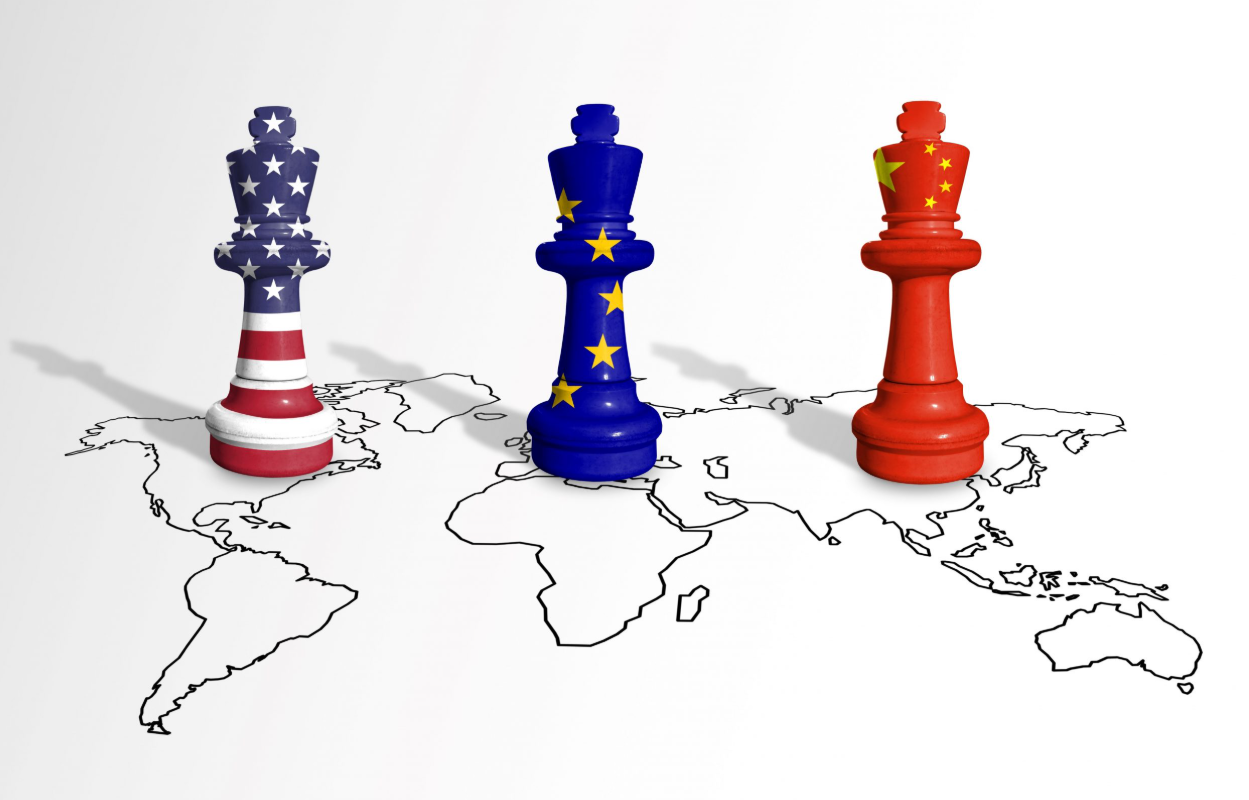By sacrificing Chinese interests to signal alignment with the United States, the European Union overestimates its own leverage and underestimates China’s resilience and strategic resolve, thereby complicating pragmatic China-EU cooperation and impeding coordination on global challenges.

Since the outset of the second Trump administration, the European Union has repeatedly been buffeted by the adverse effects of U.S. unilateralism on its strategic interests. Vice President JD Vance’s incendiary remarks at the Munich Security Conference have undermined the normative foundations of transatlantic values; Washington’s efforts to reduce tensions with Russia while scaling back support for Ukraine have shaken NATO’s security assurances and deepened Europe’s sense of abandonment; and U.S. tariff coercion has compelled EU concessions in trade, imposing further economic costs on Europe.
Confronted with U.S. shocks and coercion—and after months of adjustment and reassessment—the EU has largely settled on managing ties with Washington by safeguarding core interests through compromise and concession. In the near term, this “lesser of two evils” approach appears to limit strategic losses, but it does so at the expense of the EU’s relationship with China.
The EU’s recalibration toward the United States rests on both internal and external assessments—specifically, the prioritization and sequencing of major geostrategic and economic-security concerns. The bloc’s overriding imperative remains assisting Ukraine and resisting Russia, with some in Europe even seeking to compel Russia’s capitulation through military means. Other major policy agendas have been subordinated to the war. For example, the EU now treats positions on the Russia-Ukraine conflict as the principal metric for assessing China and regards suppressing the Russian economy as the paramount consideration in energy and trade. Consequently, even as the EU finds the Trump administration’s indifference, bullying and threats unacceptable, it has become more tightly bound to the United States across multiple domains, losing—at least in the near term—both the will and the capacity to pursue strategic autonomy.
The early tariff accord reached between the EU and the United States in July stands as the clearest example of such concessionary coordination. In that deal, Brussels effectively acceded to Washington’s demands: It pledged large-scale investment; increasing imports of U.S. energy and arms; further liberalizing market access for American companies; and accepting discriminatory treatment in the form of an average 15 percent tariff, as well as special steel-and-aluminum duties. This constitutes a comprehensive extraction of gains by the United States at the EU’s expense and portends significant long-term economic costs for Europe. While EU officials have described the arrangement as a loss-minimization outcome achieved through strenuous effort, the extent of the unilateral concessions has provoked discontent in several member states, and some members of the European Parliament have even initiated a no-confidence motion against Commission President Ursula von der Leyen on these grounds.
During Trump’s first term, the EU likewise lacked the capacity for direct confrontation with Washington, yet it still demonstrated the patience and resolve to safeguard core interests—at times expanding its strategic room for maneuver through engagement with other major powers, including China and Russia. Today, with Brussels entrenched in confrontation with Moscow and adopting a more negative posture toward Beijing, it has become ensnared in a cycle of dependence on the United States, a ceding of interests, and abdication of autonomy.
From the vantage point of transatlantic management, the EU’s most tangible short-term gain may be the preservation of a basic strategic convergence with the United States on the Russia–Ukraine conflict. Washington has indicated it is considering providing Tomahawk missiles to Ukraine via European allies, and both sides have pledged to tighten sanctions on Russia in energy and other sectors.
In an effort to keep the United States anchored within a broader Western coalition, the EU appears intent on intensifying pressure on China to enhance its perceived value as an ally in Washington’s eyes. Recently, Brussels has signaled active alignment with U.S. economic pressure on China across multiple fronts—reducing steel import quotas while sharply raising out-of-quota tariffs, advocating recourse to the Anti-Coercion Instrument in response to China’s rare-earth policies and even promoting the idea of a G7 critical minerals alliance. In effect, the EU seeks both to play the China card to bind the Trump administration more closely to Europe and to link arms with the United States vis-a-vis China, aiming to elicit further Chinese concessions through pressure in trade and on the Russia-Ukraine issue.
Yet sacrificing Chinese interests to curry favor with Washington reflects an inflated assessment of the EU’s agency and neglects China’s resilience and strategic composure. This approach also erects new barriers to pragmatic China-EU cooperation and to coordination on global challenges. By leaning too heavily on the United States and sidelining China, the EU risks boxing itself into a strategic corner. The recent constructive meeting between President Xi Jinping and President Donald Trump in Busan signaled a shared intent to manage differences and de-escalate economic confrontation. It is foreseeable that the EU will also seek to accelerate high-level exchanges and strategic consultations with China to stabilize ties. However, entrenched strategic habits may leave Brussels conflicted and inconsistent in its China policy, thereby undermining the very objectives it hopes to advance.
